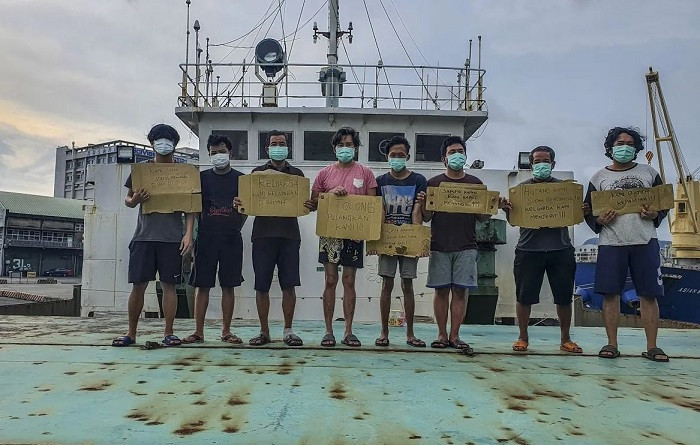Popular Reads
Top Results
Can't find what you're looking for?
View all search resultsPopular Reads
Top Results
Can't find what you're looking for?
View all search resultsThe market for policy knowledge in Indonesia
In the Indonesian public sector, policy knowledge has been rapidly growing in the last decade.
Change text size
Gift Premium Articles
to Anyone
I
n the Indonesian public sector, policy knowledge has been rapidly growing in the last decade. More and more experts, academics, researches, including multilateral institutions are joining the policy-making discussion whether structurally in government agencies or as external consultants in diverse stages of government.
The idea of adding and sharing more knowledge to policymakers are believed to be productive for prudent policy development. With this level of knowledge stream in the policy-making business, however, what interesting is the other way around. How this plethora of policy knowledge in the public sector can be used in a more practical way in the private sector. In another word, is there any market for policy knowledge?
More and more companies, even start-ups, have now placed significant effort in maintaining productive relationships with policymakers. Traditionally related to tax regulation-related issues, private sector relation in public policy is now expanding in the policy development area.
This involvement is further fueled with the strong support of the current administration in the public-private investment relation. This article, however, will avoid discussing a destructive knowledge relation between public and private sectors such as corruption and collusion. The idea of knowledge relation raised in this article will focus on the knowledge of economic analysis.
The knowledge of economic analysis and trends is surely an attractive one to develop in Indonesia. The openness of our national budget has made private sector increased their focus on understanding fiscal policy as a measure for future economic performance. For high-income business, developing an in-house economic analysis division will not pose a high-cost burden.
For medium and small businesses, however, the knowledge often rely on the third-party source, whether through a free or a paid service. Interestingly, although economic indicator relations are already broadly mentioned in the textbook and scientific articles, not many businesses have mastered it profitably. The owner of the pool of knowledge related to economic issues is now, arguably, leaning more on policymakers. Additionally, the increasing involvement of international partners has also flourished the capacity of the public sectors.
The vastly growing pool of knowledge supply in the public sector, however, faced with challenges. Knowledge management in the public sector is often specific and for internal purposes. Additionally, similar to how financial market highly regulates insider trading, government policymakers are also often highly cautious in disseminating its knowledge. Avoiding promising gesture and sharing unfinished policy act as the main control factors in government communication, often called as official stance rule. This often led to a limitation of knowledge sharing by policymakers. This selection might be relevant for the security-related issue and future unannounced fiscal policy plan (taxation, spending, financing). Nevertheless, for economic issues, this approach might be less suitable. The analysis of recent economic condition, including budget realization, for example, should lie on a public domain.
We are not neglecting that there have been several channels available for policy discussion (press conference, policy forums, and official social media). Nevertheless, this type of channels is often in a top-down management with less incentive for an openly engaging conversation, especially for young policymakers.
Regarding young policymakers, in conventional policy-making business, they are regularly not considered as one of the sources of idea and innovation. They are confined to understand administrative and bureaucratic requirements in their stage of career, neglecting how this type of policymakers are the ones who have the best absorption and learning capabilities. Their involvement, however, is relatively noteworthy in terms of social media engagement. It is easier for the younger generation of policymakers to share their view through their personal social media as it helps pass through the limitation of the official stance rule.
Additionally, after office hour discussion groups are also among the popular media for many young economists to share and develop their policy knowledge. Nevertheless, these types of engagements would only match for those who have personal incentive to be socially active.
The idea of a policy knowledge market where public and private sector can easily enter and exit will surely be helpful in creating synergy. In a digitalized world, more information could encourage greater accountability for the public sector and more reference for the private sector. This involvement, however, is hard to achieve as people are generally not altruistic. People will respond to incentives, including to share their knowledge. For some, the incentive could come from an official assignment or being recognized as socially active. Yet for some the incentive that they looked might be in terms of financial gain. With this article, we aim to provide a starting idea to develop a leaner incentive policy related to knowledge transfer between public and private sector. In his book titled “Originals: How Non-Conformist Move The World”, Adam Grant mentioned an idea called Vuja de, looking at something similar in a fresh perspective. There are surely pros and cons in the issue incentivizing public policy knowledge sharing. Nevertheless, in a common goal of creating a more prosperous Indonesia, maybe we all need to induce our own Vuja de of managing public knowledge.
***
The writers work as analysts at the Fiscal Policy Agency, Indonesia’s Finance Ministry. The views expressed in this article are personal.










